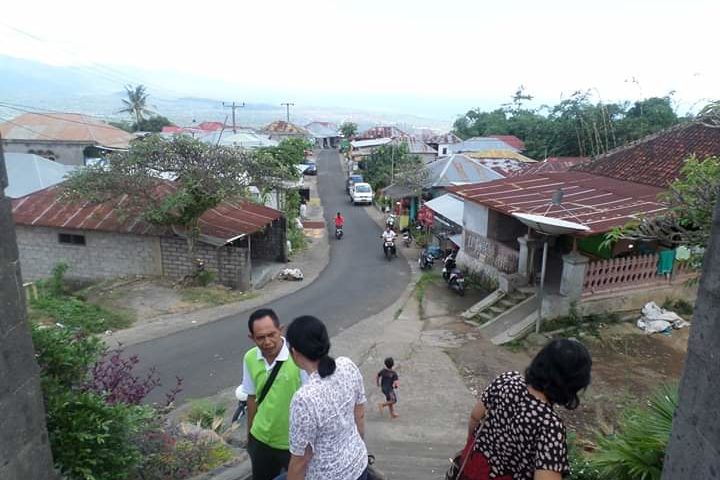
Bali, a tropical paradise renowned for its stunning beaches, vibrant culture, and warm hospitality, is also home to a unique community known as the Bali Aga. Nestled in the heart of this Indonesian island, the Bali Aga people are a group of indigenous inhabitants who have managed to preserve their ancient traditions and way of life amidst the rapid modernization of Bali. In this article, we delve into the fascinating world of the Bali Aga, exploring their rich cultural heritage, customs, and their ongoing struggle to maintain their identity in the face of modern challenges.
The Bali Aga, which translates to "original Balinese," are believed to be the island's original inhabitants who migrated to Bali long before the arrival of the Majapahit kingdom in the 14th century. Living predominantly in the villages of Tenganan, Trunyan, and Pedawa,Sidatapa the Bali Aga maintain a distinct cultural identity that sets them apart from the majority of Balinese people.
One of the striking features of the Bali Aga villages is their unique architectural style.
Traditional Bali Aga houses are typically built with a mix of stone, clay, and wood, showcasing intricate carvings and traditional motifs. These structures are designed to harmonize with the surrounding natural environment and reflect the spiritual beliefs of the community.
The Bali Aga community holds steadfast to their ancient customs and rituals, which play a significant role in their daily lives. These rituals are deeply rooted in animism, with an emphasis on maintaining a balance between humans, spirits, and nature. Examples of their customs include the Mekare-Kare festival, a ritualistic combat with thorny pandanus leaves, and the Nyepi ceremony, a day of silence and introspection.
The Bali Aga are known for their exceptional weaving skills and craftsmanship. Women in the community are skilled weavers who produce intricate textiles using traditional techniques, such as the double ikat method. These textiles are highly valued and often used in ceremonies and religious rituals. The Bali Aga craftsmen also excel in wood carving, producing exquisite statues and artifacts that reflect their spiritual beliefs.
Preservation Efforts and Challenges:
Despite their commitment to preserving their cultural heritage, the Bali Aga face numerous challenges in the modern world. The rapid growth of tourism in Bali and the influence of mainstream Balinese culture have posed threats to their traditional way of life. Younger generations are increasingly exposed to external influences, leading to a decline in interest and participation in their ancient customs. Furthermore, economic pressures and the need for better livelihoods have resulted in some community members seeking employment outside the villages.
However, the Bali Aga community continues to make efforts to safeguard their traditions. Local organizations and cultural institutions are working together to raise awareness, provide educational opportunities, and support the economic sustainability of the villages. The Bali Aga people are also opening their doors to tourists, allowing visitors to learn about their culture and contribute to the community's welfare through responsible tourism.
The Bali Aga people are a living testament to the resilience and strength of indigenous cultures. Despite the encroachment of modernity and the challenges they face, they remain committed to preserving their unique heritage. Through their distinctive architecture, ancient customs, and exquisite craftsmanship, the Bali Aga provide a glimpse into a world that existed long before Bali became a global tourist destination. By embracing responsible tourism and supporting their efforts to sustain their way of life, we can help ensure the preservation of the Bali Aga culture for future generations to cherish and appreciate.
Tourism and Cultural Exchange:
As the Bali Aga villages become more accessible to tourists, there is a growing interest in experiencing their unique culture and way of life. However, it is essential that tourism is managed in a sustainable and responsible manner to protect the integrity of the communities and their traditions. Local initiatives are being developed to ensure that tourism benefits the Bali Aga directly, providing economic opportunities while respecting their cultural values.
Homestay programs have been established, allowing visitors to immerse themselves in the daily life of the Bali Aga people. By staying with local families, tourists can gain a deeper understanding of their customs, participate in traditional activities, and support the local economy. Community-led guided tours are also available, where visitors can explore the villages, witness traditional ceremonies, and interact with the residents, fostering cultural exchange and appreciation.
Education and Cultural Awareness:
Education plays a crucial role in preserving the Bali Aga heritage. Efforts are being made to integrate cultural education into school curricula, ensuring that younger generations learn about their ancestral traditions from an early age. Local cultural centers and museums serve as important platforms for showcasing the Bali Aga's cultural artifacts, traditional arts, and history, helping to raise awareness among both locals and tourists.
Collaboration and Support:
Preserving the Bali Aga culture requires collaboration and support from various stakeholders. The government, NGOs, and local communities are working together to create sustainable development plans that prioritize the preservation of cultural identity and promote the well-being of the Bali Aga people. Financial support is being provided to improve infrastructure, promote cultural events, and create economic opportunities that align with their traditions and values.
Global Recognition and Appreciation:
The uniqueness and significance of the Bali Aga culture have gained recognition globally. International organizations and cultural institutions are working towards safeguarding indigenous knowledge and promoting the cultural heritage of the Bali Aga. Such recognition not only highlights the value of the Bali Aga culture but also encourages cultural exchange and understanding among different communities around the world.
In conclusion, the Bali Aga are a remarkable community dedicated to preserving their ancient traditions amidst a rapidly changing world. Through sustainable tourism, education, collaboration, and support, their cultural heritage can thrive and continue to inspire generations to come. By valuing and respecting indigenous cultures like the Bali Aga, we can foster a greater appreciation for the diversity of our global heritage and ensure its preservation for the future.




